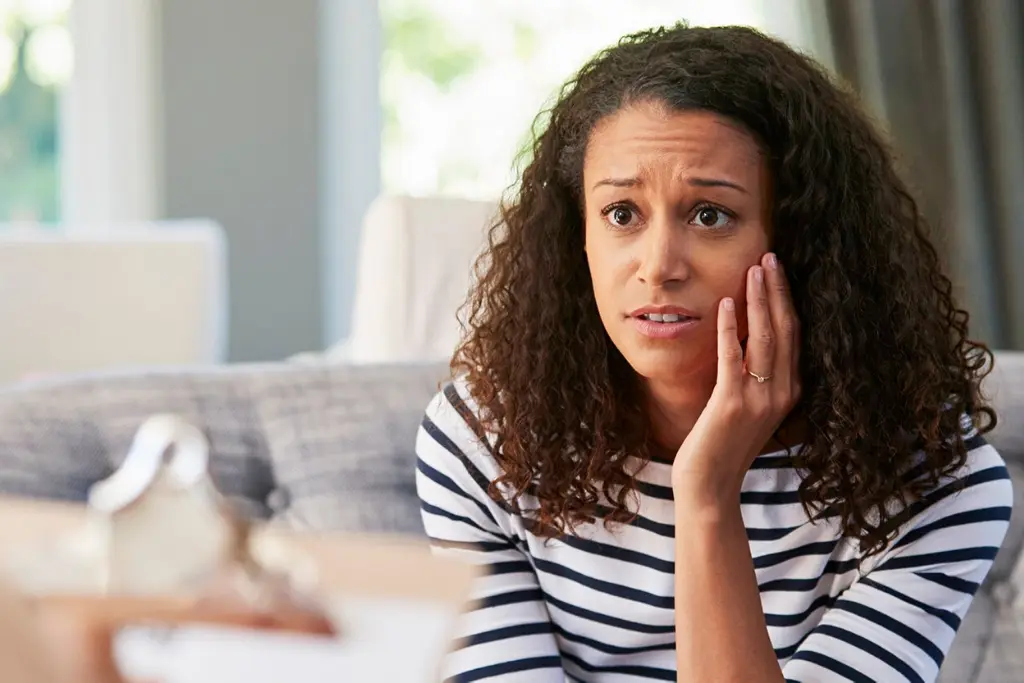Anxiety is a normal part of life. Mahy people feel anxious when faced with problems in the workplace, before a test or when making an important decision. However, anxiety disorders are different as they can cause enough distress that interferes with a person’s ability to lead a normal life.
An anxiety disorder is a serious mental illness, that causes people to respond to certain situations with fear or dread, as well as physical signs such as excessive sweating and heart palpitations. Anxiety disorders can also cause feelings of overwhelming feelings of worry and fear which can be crippling.
An anxiety disorder is diagnosed if the response to a situation is not appropriate if the response cannot be controlled. or if the anxiety interferes with normal daily life. Anxiety disorders can worsen if left untreated. Fortunately, effective treatments are available.
What are the types of anxiety disorders?
There are several recognised anxiety disorders. The 5 major types including:
- Panic disorder: People with this disorder can experience feelings of terror that can occur quite suddenly and repeatedly with no prior warning. Other symptoms include panic attacks, excessive sweating, chest pain, heart palpitations and a feeling of choking which may cause the person to feel like they are having a heart attack.
- Post-traumatic stress disorder (PTSD): PTSD is a condition that can develop following a traumatic event, such as a sexual or physical assault, the unexpected death of a loved one, or a natural disaster. The condition may develop not only after directly experiencing the trauma.
- Social anxiety disorder: Also known as social phobia. Social anxiety disorder causes a person to experience overwhelming feelings of worry and self-consciousness about social situations. This often centres around the fear of being judged by others or behaving in a way that can lead to embarrassment or ridicule.
- Phobias: A phobia is an intense fear of a specific object or situation, such as rats, heights or flying. The level of fear usually is inappropriate to the situation and might cause the person to avoid common, everyday situations.
- Generalised anxiety disorder: This disorder involves excessive, unrealistic worry and tension, even if there is little or nothing to provoke the anxiety.
What causes anxiety disorders?
Even though the exact cause of anxiety disorders isn’t known, it is not a result of weaknesses or poor character flaws. Instead, anxiety disorders are found to be caused by a combination of factors, including biology and environmental stresses.
Anxiety disorders might be caused by chemical imbalances in the brain. Research has found that severe or long-term stress can change the balance of chemicals in the brain that specifically controls mood.
Also, certain environmental factors — such as a traumatic event — can trigger an anxiety disorder in people who have an inherited susceptibility to developing the disorder.
What are the symptoms of an anxiety disorder?
Symptoms vary depending on the type of anxiety disorder a person may have, but general symptoms of anxiety include:
- Feelings of fear, uneasiness or panic
- Shortness of breath
- Uncontrollable and/or obsessive thoughts
- Nightmares
- Nausea
- Sleeping problems
- Cold or sweaty hands
- Ritualistic behaviours, such as repeated hand washing
- Dry mouth
- Numbness or tingling in the hands or feet
- Repeated flashbacks or thoughts of traumatic experiences
- Heart palpitations
- An inability to be calm
- Muscle tension
How are anxiety disorders diagnosed?
If symptoms are present, a specialist doctor will begin an evaluation by performing a complete medical history and physical examination. By using various diagnostic tests, a doctor will be able to rule out any physical illnesses that could be the cause of the symptoms.
If no physical illness is found, the person might be referred to a psychiatrist or psychologist who is specially trained to diagnose and treat mental illnesses. Psychiatrists and psychologists use specially designed assessment tools to evaluate a person for an anxiety disorder.
They will then base their diagnosis on the patient’s report of the intensity and duration of symptoms, as well as the results of the observation of the patient’s attitude and behaviour. The results will then be used to determine if the patient’s symptoms and degree of dysfunction indicate a specific anxiety disorder.
How are anxiety disorders treated?
Although the exact treatment approach depends on the type of disorder, there are a combination of the following therapies that may be used to help treat most anxiety disorders. These include:
Medication
Antidepressants and anti-anxiety tablets can be used to reduce the symptoms of anxiety disorders
Psychotherapy
Psychotherapy helps to address the emotional response to an anxiety disorder. It is a process in which trained mental health professionals help people by talking through strategies that help to understand and deal with their disorder.
The most common type of psychotherapy used with anxiety disorders is cognitive-behavioural therapy. In this type of therapy, a person will learn to recognise and change their thought patterns and behaviours that lead to troublesome thoughts and feelings.
Can anxiety disorders be prevented?
Anxiety disorders cannot be prevented; however, there are some things you can do to control or decrease symptoms:
- Reducing your intake of products containing caffeine, such as tea, coffee, chocolate and cola.
- Speak to your GP or pharmacist before taking any over-the-counter medicines to avoid taking medicines that contain chemicals that increase anxiety symptoms.
- Eat a healthy and balanced diet
- Exercise regularly
- Seek counselling and support after a traumatic or disturbing experience.
If you suffer from an anxiety disorder and the above self-help strategies listed in this blog still isn’t helping, you may benefit from receiving specialist treatment.
Contact us today to speak to one of our patient advisors who will advise you on the best route.





